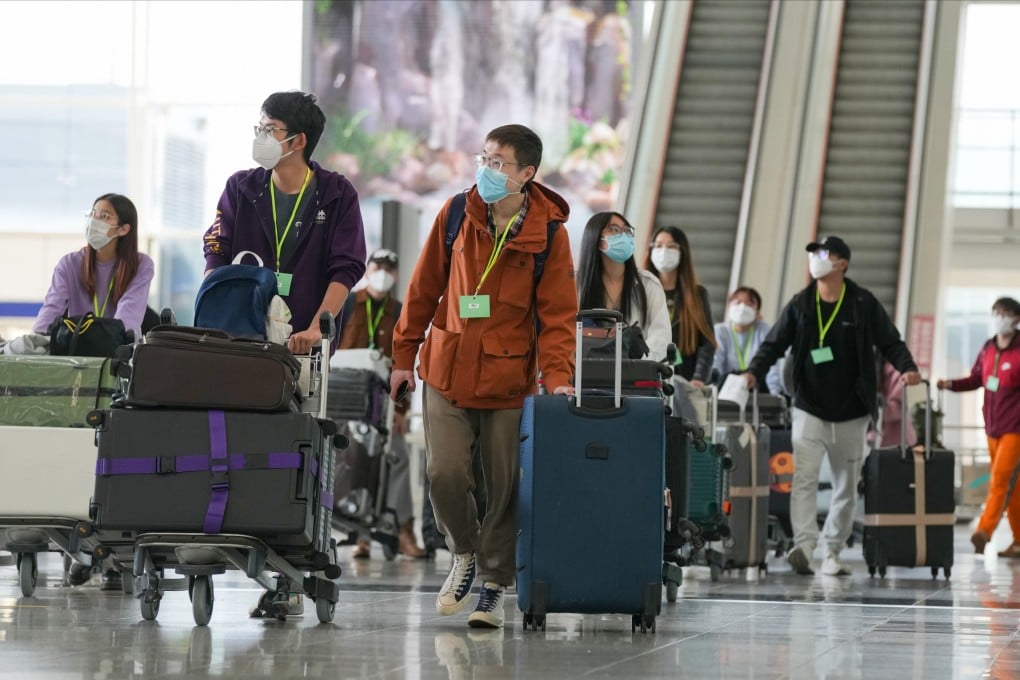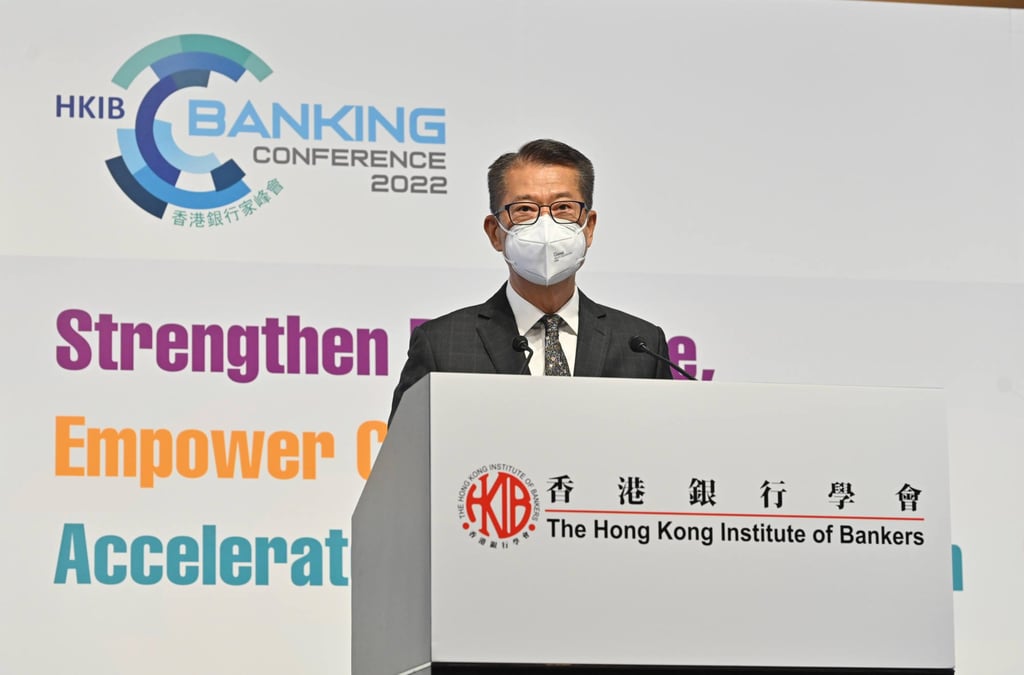Hong Kong’s officials are confident that talent will come back and stay with city’s ‘0+3’ quarantine easing
- Hong Kong’s ranking in the Global Financial Centres Index slipped to fourth place as many professionals left the city out of their frustration with Covid-19 rules
- The exodus has led to a severe shortage of talent across the job market from banking to teaching, forcing many employers to raise their salaries to attract applicants

The quarantine policies to contain “Covid-19 may have hampered our attractiveness and retention of talent, but we will soon reconnect with the world and talent will return,” Financial Secretary Paul Chan Mo-po said during the annual conference of the Hong Kong Institute of Bankers (HKIB). “We are determined to roll out a message to attract more people to come [back] to Hong Kong.”

“It is clear that there has been an exodus of talent, both local and foreign, from Hong Kong, and Singapore is often a favoured destination,” said Lee Quane, Asia regional director at ECA International. Singapore’s recent changes in immigration policies “may succeed in retaining talent .. from Hong Kong to Singapore, particularly given the disparity in the two cities’ policies in dealing with Covid-19.”